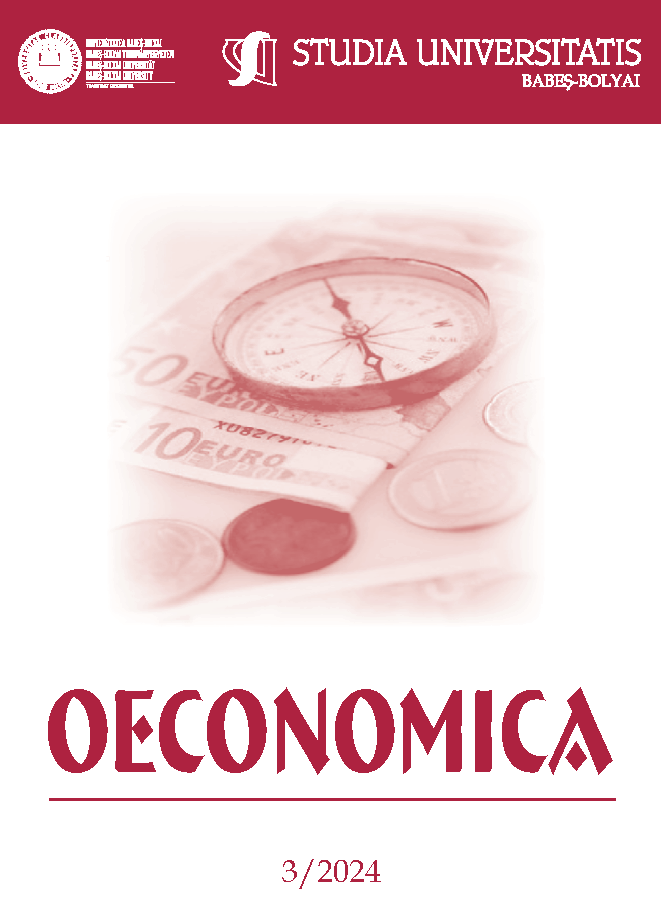HRM ALGORITHMS AND VALUE CREATION THROUGH AI IN TRAINING AND DEVELOPMENT
DOI:
https://doi.org/10.2478/subboec-2024-0012Keywords:
HRM algorithms, Recruitment and Selection, HR procedure, software solutionsAbstract
The purpose of this research study is to investigate the effect of HRM algorithms thorough Artificial Intelligence (AI) on small and medium-sized enterprises, with a specific focus on Learning and Development processes. Based on insights shared by technical and HR managers, this study shows that AI-driven HRM algorithms provide effective mechanisms for improving the efficiency of training sessions to cater learning interests while synchronizing it with business requirements. The results also suggest that although there is concern about AI replacing human teachers and the strategy of virtual classes, the potential benefits in changing the learning and development process makes it generally positive on deploying AI. In other words, AI could bring great hope of improving education/training and yet there are some limitations.
JEL Classification: M12, M15, M54
References
Angrave, D., Charlwood, A., Kirkpatrick, I., Lawrence, M., & Stuart, M. (2016). HR and analytics: Why HR is set to fail the big data challenge. Human Resource Management Journal, 26(1), 1–11, https://doi.org/10.1111/1748-8583.12090.
Bennett, E. E. (2022). Leveraging technology to design and deliver human resource development. In In the emerald handbook of work, workplaces and disruptive issues in HRM (pp. 261–276). Emerald Publishing Limited. https://doi.org/10.1108/978-1-80071-779-420221026.
Bhatt, P. K., Muduli, A. (2022). Artificial intelligence in learning and development: A systematic literature review. European Journal of Training and Development, 47(7/8), 677–694. https://doi.org/10.1108/EJTD-09-2021-0143, DOI: 10.1108/EJTD-09-2021-0143.
Brynjolfsson, E., Wang, C., & Zhang, X. (2021). The economics of IT and digitization: Eight questions for research. MIS Quarterly, 45(1), 473–477.
Huang, M. H., & Rust, R. T. (2021). A strategic framework for artificial intelligence in marketing. Journal of the Academy of Marketing Science, 49(1), 30–50. https://doi.org/10.1007/s11747-020-00749-9.
Cheng, M. M., & Hackett, R. D. (2021). A critical review of algorithms in HRM: Definition, theory, and practice. Human Resource Management Review, 31(1), 100698. https://doi.org/10.1016/j.hrmr.2019.100698.
Colomo-Palacios, R., González-Carrasco, I., López-Cuadrado, J.L. et al. (2014). I-Competere: Using applied intelligence in search of competency gaps in software project managers. Inf Syst Front 16, 607–625. https://doi.org/10.1007/s10796-012-9369-6.
Gandini, A. (2019). Labour process theory and the gig economy. Human Relations, 72(6), 1039–1056. https://doi.org/10.1177/0018726718790002.
George, G., Haas, M. R., & Pentland, A. (2014). Big Data and management. Academy of Management Journal, 57(2), 321–326, https://doi.org/10.5465/amj.2014.4002.
Harrison, P., Nichol, L., Gold, J. (2020). Redefining HRD roles and practice in the machine learning revolution. In The Future of HRD, Volume I: Innovation and Technology (pp. 143–166). Springer Nature. https://doi.org/10.1007/978-3-030-52410-4_6.
Huang, J., Saleh, S., Liu, Y. (2021). A review on artificial intelligence in education. Academic Journal of Interdisciplinary Studies, 10(3), 206–206. https://doi.org/10.36941/ajis-2021-0077.
Kim, S. (2022). Working with robots: Human resource development considerations in human robot interaction. Human Resource Development Review, 21(1), 48–74. https://doi.org/10.1177/15344843211068810.
Laney, D. (2001). 3D data management: Controlling data volume, velocity and variety. META Group Research Note (February 2001).
Lin, C., Hsu, M. (2010). Holistic decision system for human resource capability identification. Industrial Management & Data Systems, Vol. 110 No. 2, pp. 230-248. https://doi.org/10.1108/02635571011020322.
Meijerink, J., Bondarouk, T. (2023). The duality of algorithmic management: Toward a research agenda on HRM algorithms, autonomy and value creation. Human Resource Management Review, 100876. https://doi.org/10.1016/j.hrmr.2021.100876.
Meijerink, J., Boons, M., Keegan, A., & Marler, J. (2021). Algorithmic human resource management: Synthesizing developments and cross-disciplinary insights on digital HRM. The International Journal of Human Resource Management, 32(12), 2545–2562. https://doi.org/10.1080/09585192.2021.1925326.
Roschelle, J., Lester, J. E., & Fusco, J. L. (2020). AI and the future of learning: Expert panel report. Digital Promise. https://doi.org/10.51388/20.500.12265/106.
Saling, K. C., Do, M. D. (2020). Leveraging people analytics for an adaptive complex talent management system. Procedia Computer Science, 168(January), 105–111. https://doi.org/0.1016/j.procs.2020.02.269.
Sathe, T. M. (2020). Artificial Intelligence Influenced Learning and Development in the Accounting Sector. (Master’s thesis, National College of Ireland). Under the supervision of Dr. K. M. Ebenade. https://norma.ncirl.ie/5913/.
Strohmeier, S. (2018). Smart HRM–a Delphi study on the application and consequences of the internet of things in human resource management. The International Journal of Human Resource Management, 1–30, https://doi.org/10.1080/09585192.2018.1443963.
Veen, A., Barratt, T., & Goods, C. (2019). Platform-capital’s ‘app-etite’ for control: A labour process analysis of food-delivery work in Australia. Work, Employment and Society, 34(3), 388–406, https://doi.org/10.1177/09500170198369.
Vencat, E. F. (2006). The Power of We; Companies are using YouTube-like technology to tap the ideas and energy of employees. Newsweek (International ed.). Retrieved from ProQuest Canadian Business & Current Affairs Database (November 20).
Walker, J. (2012). Meet the new boss: Big data. Wall Street Journal. https://doi.org/10.1016/j.ssresearch.2010.05.001.
Walter, D. (2018). Microsoft workplace analytics: How your business can benefit. Business News Daily. https://www.businessnewsdaily.com/11092-microsoft-workplace-analytics-business.html.
Downloads
Published
How to Cite
Issue
Section
License
Copyright (c) 2024 Studia Universitatis Babeș-Bolyai Oeconomica

This work is licensed under a Creative Commons Attribution-NonCommercial-NoDerivatives 4.0 International License.



